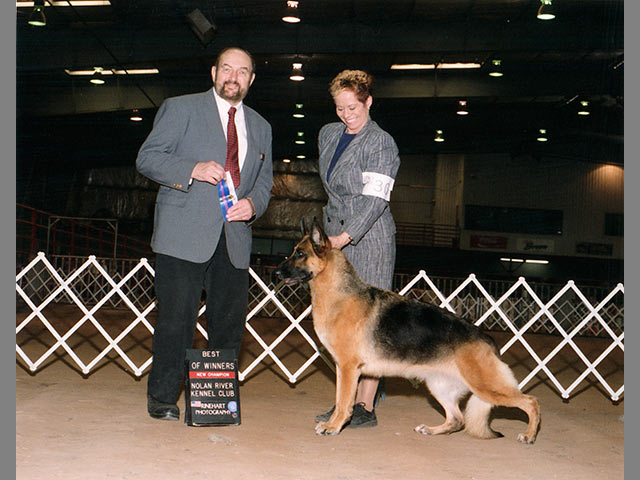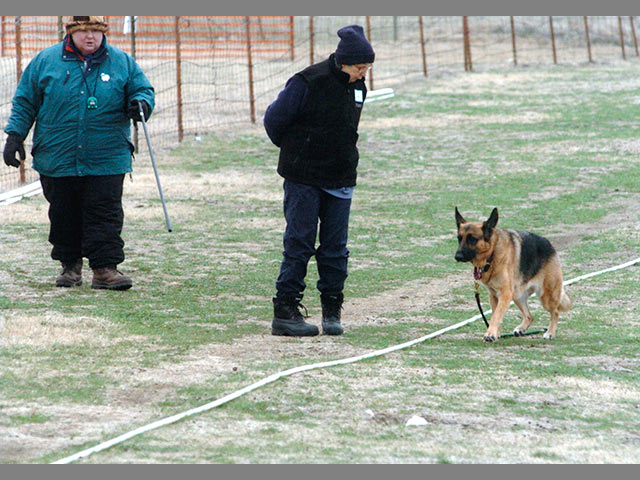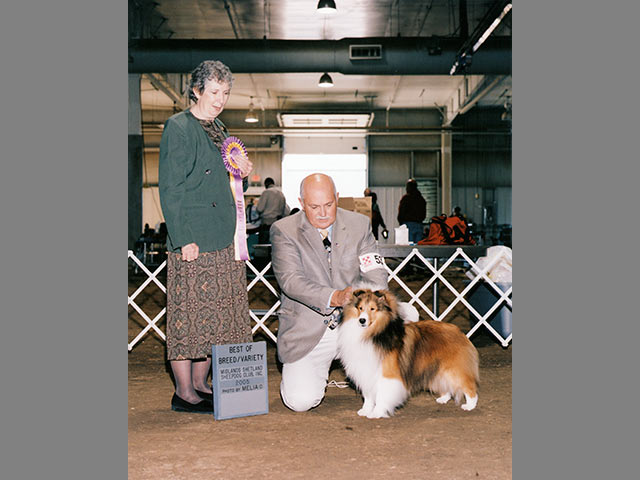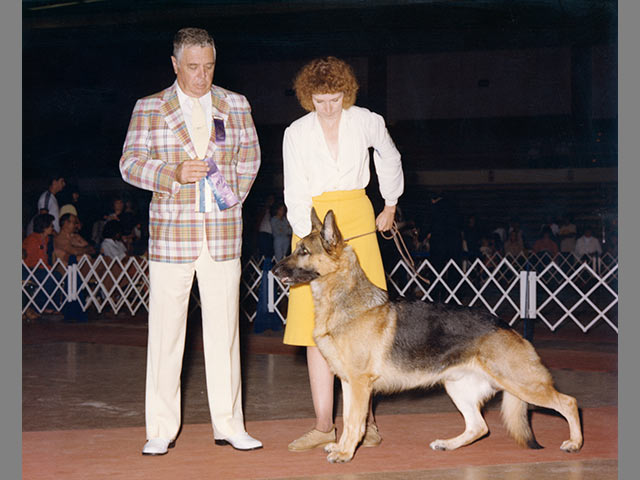Just Happens to Be a Judge




Early Experiences
Curious about animals from a young age, at 12 years of age Telfair was drawn to a woman who moved into her Memphis neighborhood. "I heard she was an AKC handler, so I showed up on her doorstep." After school each day, Telfair eagerly went to learn something new about dogs. "Actually, I was probably a nuisance! But she let me come by all the time."
Around this time, Telfair's parents got her "an unruly German Shepherd, who I took to obedience class and earned a CD title." Transforming that dog from ruffian into gentleman, combined with knowledge acquired from her neighbor, inspired Telfair to take the next step – showing in the ring. "My parents weren't into shows at all. But they were indulgent, and they humored me."
Telfair was so excited by the ring, she not only showed her own dog but asked to handle other people's dogs. As a teenager, through the mid 1950s, showing became an obsession. Still, Telfair realized she was no star. "I was, and I remain, despite studious attempts, a terrible handler. I do it because I love the dogs, not because I'm good at it. I've made peace with this long ago."
Friends in Need
Telfair went off to college and stopped showing. She got married, and her husband went to war in Vietnam, the beginning of a stressful time in Telfair's life. "My husband was going for repeated tours of duty. We moved frequently."
Between moves, Telfair got her next German Shepherd, who eased the loneliness of being constantly uprooted. She also reached out to the dog community. "Every time we moved, I'd call the local kennel club and have a set of friends. They always made a place for me, even if I was only there five months."
"I can't do obedience very well, but I discovered I'm a pretty good coach." That thinking led Telfair to contact a friend who owns an obedience school, where she took over the beginner classes. On and off during the war years, Telfair taught children and adults.
Branching Out
After a long hiatus, in 1983, with her two children in college and her marriage coming to an end, Telfair re-entered the show world, which she had been dreaming about for years. "I could pursue dogs with a passion I hadn't been able to have in the first 40 years of my life."
Middle-aged, living in Dallas, with similar curiosity she had as a 12-year-old, Telfair explored herding. "I went to trainers in Dallas, but they were mostly Border Collie people and had never seen a German Shepherd herd."
Telfair decided there was a need for a new herding club. She and a friend, Diane Brantley, spent three years recruiting members, finding meeting places, and convincing the AKC to approve their plan. Telfair traveled hundreds of miles for advice from people who ran successful herding clubs. In 1996, the AKC approved the club, naming it the North Central Texas Herding Dog Association.
Although they have since stepped out of leadership roles, Telfair and Brantley served as club president and vice president for many years. "Ours was the first all-breed herding club in Texas. It's still the only all-breed herding club in Texas, going strong today."
Although quite different, conformation led Telfair to herding. "My goal is to have champions. But I love training, preparation, grooming, getting dogs into mental and physical condition. When my dogs herd, they look better than ever. Watching herding is also an advantage for anyone who wants to judge." Although she was not yet judging, Telfair took mental notes.
Herding gave Telfair ideas about attitude. "In the ring, lots of dogs give you one nice trip around. But then it's like, 'Why do you want to do that again? We already went there!' In herding, they stay engaged the whole time. There's purpose to it. It's marvelous to watch."
As proud as Telfair is of the dogs she has trained, and her success creating the club, she offers a bit of wry humor at her own expense: "Herding is really about stock. But herding trials are great for suburbanites who know nothing about stock. I just want to watch my dogs move!"
She expanded her teaching, adding Canine Good Citizen training. "We teach beginner skills and CGC in the same class. The two things go together very well."
Looking for another morale booster, Telfair discovered Rally. "It's a forgiving sport. You go in with real expectations to succeed, unlike obedience and conformation. I've put three Rally titles on my dogs this past year. Believe me, it's more fun succeeding than failing, even for someone with lots of practice failing!"
Rally offered an opportunity for some out-of-the-classroom teaching. "A friend had never seen Rally before. We printed signs off the Internet. I told her how to practice. She trained the dog at home, then I took him into the ring, stumbled along, put a title on him. She was so proud because she did the training."
Connecting it All in Judging
In 2000, Telfair's curiosity led the way again. "I realized I'd never have influence on German Shepherds because I don't breed much, and my dogs aren't well known. But maybe I could have some influence judging. Also, I just love being at shows. It's addictive. Sometimes, I think we should put a notice up: If you or someone you know is addicted to dog shows, call 1-800-DON'T-GO. Being a judge was a way for me to go to more shows."
She got her first assignment in 2001, with German Shepherds, and has since been approved to judge half the herding breeds.
How does Telfair feel being a judge, thinking of herself as only moderately successful with her dogs? She says her experiences make her more sympathetic. "I'm well aware of what people put into this – hopes, dreams, effort, money. Most judges are very good, but once in a while I showed under someone who didn't even look at my dog. That told me what I wouldn't do as a judge. And no dog wakes up in the morning saying, 'I really want to get into a ring!' I make it fun for people and rewarding for dogs. I don't mind if exhibitors feed their dogs while showing – though I prefer they don't do it as I'm examining the mouth!"
While judging, Telfair draws on herding and obedience experiences. "I understand dogs' fitness, and can sense when a dog is mentally keen."
Becoming a judge has not changed Telfair's conviction that acceptance of small successes is an achievement. "Perhaps I could become a better competitor. But I don't care to win all the time. Enjoyment comes from being with your dog, learning something, being with other show people. You don't have to attain the highest level to benefit from these activities."
